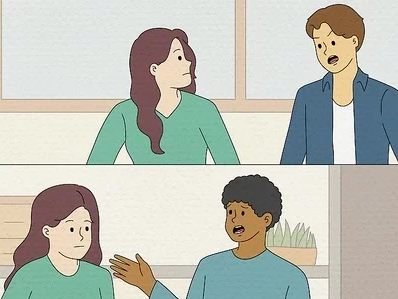Maintaining friendships can be challenging, especially when misunderstandings arise. These miscommunications can lead to hurt feelings, strained relationships, and sometimes even the end of friendships.
However, with patience, understanding, and effective communication, many misunderstandings can be resolved. Here are some tips to help you overcome misunderstandings among friends:
1. Communication is Key

Open and honest communication is vital in resolving misunderstandings. If something is bothering you, address it calmly and directly with your friend. Choose a suitable time and place for the conversation, and avoid blaming or accusing them. Instead, use “I” statements to express your feelings and concerns. Encourage your friend to share their perspective as well, and actively listen to understand their point of view.
2. Choose Your Words Wisely

Words have the power to heal or harm. During discussions about misunderstandings, choose your words carefully to avoid escalating the situation further. Be mindful of your tone and try to stay calm, even if you feel upset or frustrated. Focus on finding a resolution rather than assigning blame.
3. Practice Empathy

Put yourself in your friend’s shoes and try to understand their feelings and motivations. Empathy can help you see the situation from their perspective and find common ground. Acknowledge their emotions and validate their experiences, even if you don’t agree with them entirely. Showing empathy can strengthen your bond and foster a deeper understanding between you and your friend.
4. Take Responsibility

Be willing to acknowledge your role in the misunderstanding, even if it was unintentional. Apologize sincerely if you’ve hurt or upset your friend, and take steps to make amends. Taking responsibility for your actions demonstrates maturity and shows your friend that you value the relationship.
5. Focus on Solutions

Instead of dwelling on the problem, focus on finding solutions together. Brainstorm ideas with your friend on how to prevent similar misunderstandings in the future. This collaborative approach can help rebuild trust and strengthen your friendship.
6. Give Each Other Space

Sometimes, emotions can run high during conflicts, and it’s essential to give each other space to cool off. Take a break from the situation if necessary, but reassure your friend that you’re committed to resolving the issue. Use this time to reflect on your feelings and come back to the discussion with a clearer perspective.
7. Learn and Grow

Every misunderstanding is an opportunity for growth and learning. Reflect on what caused the misunderstanding and how it can be avoided in the future. Use the experience to strengthen your communication skills and deepen your understanding of each other.
8. Seek Mediation if Necessary

If you’re unable to resolve the misunderstanding on your own, consider seeking the help of a neutral third party, such as a mutual friend or a counselor. Mediation can provide a safe space for both parties to express their feelings and work towards a resolution with guidance.
9. Let Go of Resentment

Once the misunderstanding is resolved, let go of any lingering resentment or hard feelings. Holding onto grudges will only strain the friendship further. Focus on moving forward with a renewed sense of trust and understanding.
10. Nurture Your Friendship

After overcoming a misunderstanding, make an effort to nurture your friendship. Spend quality time together, communicate openly, and continue to support each other through good times and bad. Building a strong foundation of trust and respect will help prevent future misunderstandings and strengthen your bond over time.
Conclusion
Misunderstandings are a natural part of any relationship, but they don’t have to spell the end of a friendship. By practicing effective communication, empathy, and a willingness to resolve conflicts, you can overcome misunderstandings and emerge with an even stronger friendship. Remember, it’s not about avoiding disagreements altogether but rather how you navigate them together that truly matters.

